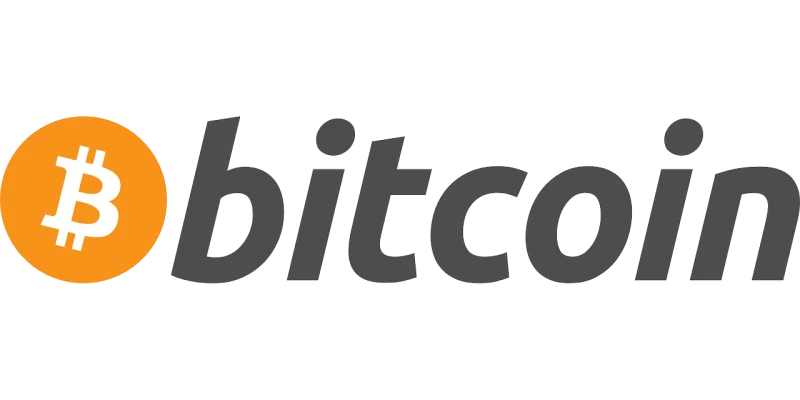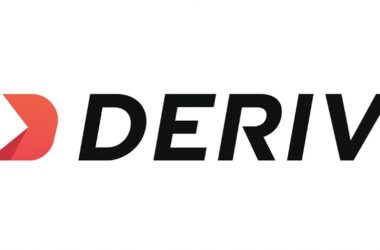In the vast cosmos of digital currencies, Bitcoin has established itself as a pioneering force, revolutionizing the financial landscape. Its decentralized nature, cryptographic security, and limited supply have garnered widespread attention. However, every celestial body has its own set of features and limitations, and Bitcoin is no exception. In this article, we delve into the intricacies of bitcoin alternative, exploring what makes it unique and why the quest for a Bitcoin alternative is gaining momentum.
Features And Limitations of Bitcoin Alternative

As we navigate through the dynamic landscape of digital currencies, exploring the features and limitations of Bitcoin alternatives becomes imperative for informed decision-making and a comprehensive understanding of the evolving cryptocurrency universe.
Features of Bitcoin Alternatives
- Innovative Use Cases: Bitcoin alternatives often introduce novel use cases beyond simple peer-to-peer transactions, such as smart contracts, decentralized applications (DApps), and interoperability features.
- Enhanced Transaction Speeds: Many alternatives offer faster transaction processing times, addressing Bitcoin’s scalability challenges and providing users with quicker and more efficient digital transactions.
- Specialized Security Measures: Bitcoin alternatives may implement unique security features, such as different consensus mechanisms, cryptographic techniques, and privacy-focused protocols, ensuring the safety of digital assets.
- Community-Driven Development: A vibrant and engaged development community often characterizes Bitcoin alternatives, fostering continuous innovation, improvements, and a dynamic ecosystem for users.
- Environmental Sustainability: Some alternatives prioritize eco-friendly approaches, utilizing energy-efficient consensus mechanisms that aim to minimize the environmental impact associated with cryptocurrency mining.
Limitations of Bitcoin Alternatives
- Limited Recognition and Adoption: Despite their unique features, Bitcoin alternatives may face challenges in gaining widespread recognition and adoption, as Bitcoin continues to dominate the cryptocurrency market.
- Regulatory Uncertainty: Similar to Bitcoin, alternatives may encounter regulatory challenges, with uncertain or evolving legal frameworks impacting their acceptance and sustainability in certain jurisdictions.
- Interoperability Challenges: While some alternatives focus on interoperability, achieving seamless communication between different blockchains can present technical challenges, affecting their overall effectiveness.
- Development Risks: The innovative nature of Bitcoin alternatives may expose them to potential development risks, including bugs, vulnerabilities, and uncertainties in the implementation of new features.
- Market Volatility: The value of Bitcoin alternatives may be subject to market volatility, influenced by factors such as user sentiment, market trends, and external events, posing risks for investors and users.
Why Sets a Bitcoin Alternative Apart?
In the ever-evolving realm of digital currencies, the quest for a Bitcoin alternative unveils a compelling narrative of innovation and differentiation. Understanding what sets these alternatives apart is paramount in navigating the dynamic landscape of cryptocurrency. As we delve into the intricacies of each alternative, we unravel a diverse spectrum of possibilities, each presenting distinctive features and attributes that contribute to the ever-expanding tapestry of the digital financial revolution. In this exploration, we illuminate the unique facets that distinguish Bitcoin alternatives, offering users a nuanced understanding of their potential and the exciting opportunities they bring to the forefront of the crypto universe.
Why Seek a Bitcoin Alternative?

As we navigate the intricate landscape of digital currencies, the quest for a Bitcoin alternative unfolds as a dynamic pursuit driven by the desire for diverse functionalities, solutions to scalability challenges, environmental consciousness, and personalized privacy and security features, ushering users into a realm of possibilities beyond the traditional boundaries of cryptocurrency.
1. Diversifying Functionality Beyond Transactions
In the dynamic landscape of digital currencies, the quest for a Bitcoin alternative extends beyond the traditional realms of peer-to-peer transactions. Users are driven by a desire to explore cryptocurrencies that offer a diverse range of functionalities, transcending the straightforward transfer of value. These alternatives introduce innovative features such as smart contracts and decentralized applications (DApps), providing users with a comprehensive ecosystem that goes beyond the conventional use of Bitcoin.
2. Addressing Bitcoin’s Scalability Limitations
The scalability hurdles faced by Bitcoin, manifesting as slow transaction processing times and high fees, ignite the quest for alternatives that can overcome these limitations. Users actively seek cryptocurrencies that offer faster and more cost-effective transaction solutions, paving the way for improved usability and broader adoption. The exploration is fueled by a need for efficiency in handling a growing user base and transaction volume.
3. Environmental Consciousness: Seeking Eco-Friendly Options
As environmental awareness becomes a focal point in the cryptocurrency space, the search for a Bitcoin alternative is shaped by a commitment to sustainability. Users, cognizant of the carbon footprint associated with Bitcoin’s energy-intensive proof-of-work mechanism, actively explore alternatives with eco-friendly consensus mechanisms. This pursuit aligns with a global shift towards environmentally conscious practices and the desire to contribute to a greener future.
4. Privacy and Security: Tailoring Solutions to Individual Needs
The diverse needs of users fuel the exploration for alternatives that prioritize privacy and security, addressing concerns that may not be fully met by Bitcoin’s conventional approach. Individuals seeking enhanced anonymity and robust security features find solace in alternatives that go beyond the standard, offering tailored solutions to safeguard digital assets. This personalized approach reflects the evolving preferences of users who prioritize the protection of their financial privacy in the ever-expanding realm of cryptocurrency.
Commonly Used Bitcoin Alternatives: Exploring 10 Potent Options

In the expansive universe of digital currencies, the search for a Bitcoin alternative introduces us to a diverse array of options, each possessing distinctive features and capabilities that redefine the landscape of cryptocurrency. Let’s embark on a comprehensive exploration of ten potent Bitcoin alternatives, delving deeper into the intricacies that make each of them a noteworthy contender in the ever-evolving world of decentralized finance.
1. Ethereum (ETH): Smart Contracts Redefined
Ethereum stands as a pioneer in the realm of cryptocurrency, transcending the conventional limitations of digital currencies. Its groundbreaking introduction of smart contracts has revolutionized the way transactions and agreements are executed. Unlike Bitcoin, Ethereum allows users to create decentralized applications (DApps) on its blockchain, fostering a new era of programmable and self-executing contracts that go beyond the simple transfer of value.
2. Ripple (XRP): Swift and Cost-Effective Cross-Border Transactions
Ripple emerges as a frontrunner by directly addressing the challenges associated with international transactions. With a focus on speed and cost-effectiveness, XRP utilizes a unique consensus algorithm known as the Ripple Protocol Consensus Algorithm (RPCA). This enables seamless cross-border transactions, making it an attractive alternative for users seeking swift and efficient global financial interactions, particularly in the realm of remittances and cross-border payments.
3. Litecoin (LTC): The Silver to Bitcoin’s Gold
Often referred to as the “silver to Bitcoin’s gold,” Litecoin (LTC) positions itself as a complementary asset to Bitcoin. It distinguishes itself through faster transaction times and a different hashing algorithm (Scrypt). This alternative offers users a blend of familiarity and innovation, maintaining the store of value narrative while enhancing transaction efficiency and speed, making it an intriguing option for those seeking both reliability and innovation.
4. Cardano (ADA): Elevating Security and Sustainability
Cardano (ADA) takes a meticulous approach to security and sustainability in the blockchain space. Driven by a commitment to research-driven development, Cardano focuses on providing a secure and sustainable platform for decentralized applications. This alternative emphasizes peer-reviewed academic research and aims to create a robust foundation for long-term viability, setting itself apart as a forward-thinking and innovative option.
5. Polkadot (DOT): Interoperability Unleashed
In the pursuit of achieving seamless communication between different blockchains, Polkadot (DOT) emerges as a trailblazer. Its unique parachain architecture facilitates interoperability, allowing various blockchains to connect and communicate. This addresses scalability concerns and positions Polkadot as an attractive choice for users seeking a comprehensive and interconnected crypto ecosystem, where different projects can collaborate and share information seamlessly.
6. Chainlink (LINK): Bridging Smart Contracts with Real-World Data
Chainlink (LINK) takes a distinctive role in the cryptocurrency space by acting as a decentralized oracle network. Its primary function is to bridge smart contracts with real-world data, enhancing the reliability and functionality of decentralized applications. This alternative addresses the critical need for trustworthy external data sources, positioning itself as an invaluable tool for developers and users seeking increased transparency and reliability in the execution of smart contracts.
7. Neo (NEO): Bridging Digital and Traditional Assets
Neo, often referred to as “Chinese Ethereum,” distinguishes itself by providing a platform for the development of decentralized applications and smart contracts. Its dual-token system, comprising NEO and GAS, fuels a seamless integration of digital and traditional assets. Neo’s focus on regulatory compliance and digital identity makes it a compelling alternative for those seeking a bridge between the blockchain world and real-world applications. The platform’s commitment to fostering a smart economy and its scalability features contribute to its prominence in the cryptocurrency space.
8. Tezos (XTZ): Empowering Decentralized Governance
Tezos (XTZ) stands out by emphasizing a unique approach to decentralized governance and self-amendment. Unlike many cryptocurrencies, Tezos allows the community to actively participate in protocol upgrades, empowering users to shape the future development of the platform. This commitment to community-driven evolution fosters a sense of ownership and innovation within the Tezos community, setting it apart as a cryptocurrency that values decentralization not only in functionality but also in governance.
9. Monero (XMR): Privacy as a Fundamental Right
Privacy takes center stage with Monero (XMR), distinguishing itself by prioritizing the fundamental right to transactional privacy. Monero utilizes advanced cryptographic techniques such as ring signatures and stealth addresses to ensure complete anonymity in transactions. This commitment to privacy makes Monero a potent alternative for users who prioritize the confidentiality and fungibility of their digital transactions.
10. Stellar (XLM): Balancing Speed and Security
Stellar (XLM) a deriv alternative reappears on our list, showcasing its commitment to balancing transaction speed and security. With a focus on scalability and user-friendly features, Stellar presents itself as a strong contender in the cryptocurrency arena. It aims to provide efficient transactions without compromising on cryptographic principles, offering users a reliable and fast alternative that aligns with the evolving demands of the crypto community.
Factors To Consider While Choosing The Perfect Alternative to Bitcoin

Selecting the perfect Bitcoin alternative demands a meticulous examination of several critical factors, ensuring a harmonious fit with individual preferences, specific use cases, and the dynamic landscape of the cryptocurrency market. In this exploration, we delve deeper into five pivotal factors that warrant careful consideration:
1. Scalability: Matching Demand with Performance
Scalability serves as the linchpin when evaluating Bitcoin alternatives. It goes beyond transaction speed, encompassing the platform’s ability to handle a burgeoning user base and increased transaction volume. A scalable alternative ensures adaptability to evolving demands, guaranteeing swift and efficient transactions even during peak periods. Consider the scalability roadmap of the alternative, understanding how it plans to sustain performance as adoption grows.
2. Security Features: Safeguarding Digital Assets
Security is non-negotiable in the realm of cryptocurrency. Beyond surface-level considerations, scrutinizing the intricacies of the security features becomes imperative. Evaluate the cryptographic techniques underpinning the alternative, the resilience of its consensus mechanisms, and any additional layers of security fortifying the network against potential threats. A comprehensive security infrastructure is paramount to safeguarding digital assets, ensuring the immutability and trustworthiness of transactions.
3. Use Case Suitability: Tailoring Solutions to Your Needs
The third factor, use case suitability, revolves around aligning the features of the alternative with your specific objectives and requirements. Different cryptocurrencies excel in various domains – whether it’s rapid transactions, enhanced privacy, or advanced smart contract functionality. Assess how well the alternative aligns with your unique needs, ensuring that it provides tailored solutions that resonate with your intended use. A perfect alternative is one that seamlessly integrates into your ecosystem, addressing your specific use case requirements.
4. Development Community: The Backbone of Innovation
The strength of a cryptocurrency extends beyond its codebase to the vibrancy of its development community. An engaged and knowledgeable community often signifies continuous innovation and improvement. Dig deeper into the community dynamics behind the alternative you’re considering. Assess the level of community involvement, the responsiveness of developers to user feedback, and the frequency of updates. A thriving community not only bolsters confidence but also contributes to the ongoing evolution of the platform.
5. Regulatory Compliance: Navigating the Legal Landscape
In the complex and evolving regulatory landscape of cryptocurrencies, understanding the regulatory compliance of potential alternatives is paramount. Evaluate how well the alternative aligns with existing and emerging regulations in various jurisdictions. Some alternatives may face regulatory challenges, impacting their acceptance and sustainability. Choosing an alternative that proactively navigates the legal landscape mitigates legal risks and ensures a stable trajectory. Stay informed about compliance efforts and engagements with regulatory bodies to gauge the alternative’s commitment to regulatory standards.
Conclusion
In the vast expanse of the cryptocurrency universe, the search for the perfect Bitcoin alternative is both exciting and daunting. As technology advances and user preferences evolve, the landscape will continue to shift. Whether it’s Ethereum’s smart contracts, Ripple’s swift transactions, or Monero’s commitment to privacy, each alternative brings a unique flavor to the table. When embarking on this cosmic journey, armed with the knowledge of Bitcoin’s features and limitations, as well as the diverse alternatives available, you’re well-equipped to navigate the ever-expanding galaxy of digital currencies.









